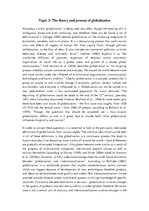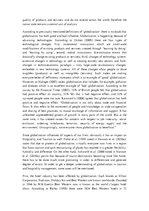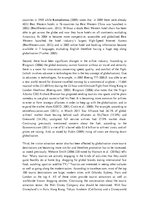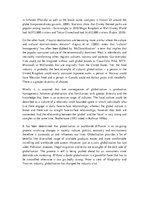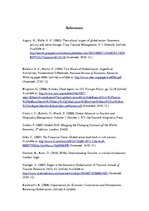Our everyday lives could not be imagined without such global brands as Coca-Cola, Nike, MTV, Microsoft or McDonalds that are originally from the United States. Yet, the food industry is probably the best example of cultural globalization – a person in the United Kingdom could easily consume Japanese sushi, a person in Norway could have Mexican food and a person in Canada could eat Italian pasta with meatballs. There is a greater diversity of choices.
Mostly it is assumed that one consequence of globalisation is production homogeneity, however globalisation also familiarises with greater diversity and the knowledge that there is an extensive range of cultures. The local culture could be described as a culture of a relatively small bounded space in which individuals who live there engage in daily face-to-face relationships, whereas the global culture is broad and there are no straight face-to-face relationships, however they both are connected. And the relationship between the ‘global’ and the ‘local’ is very strong and complex at the same time. Feathersone (1993 noted in Kofman 1996a)
It has been determined that globalisation or worldwide diffusion is an on-going process involving changes in society, culture, politics, economy and environment therefore it surrounds us and influences our lives. Globalisation provides a lot of benefits like diversified range of available products, easier and more comfortable travelling and worldwide web access. However, just as a coin, globalisation has two sides. Pollution, diseases, illegal migration and terror are examples of the dark side of globalisation. The process it self is being pushed ahead by us, consumers since demands are increasing. Without a doubt globalisation is a powerful force that has to be controlled otherwise it can go badly wrong. From a view of Hospitality and Tourism industry, globalisation has changed the industry a lot.
…
